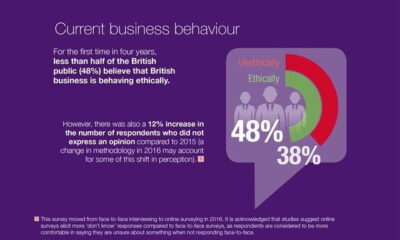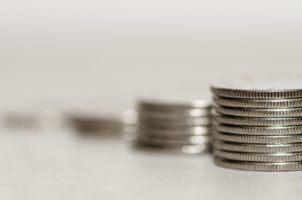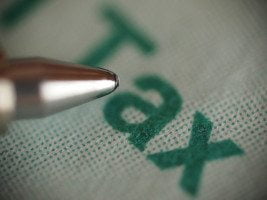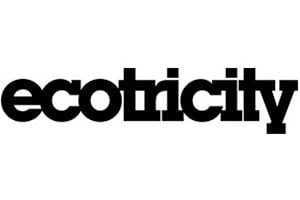

Features
The joy of tax
Above the entrance to the US Internal Revenue Service are inscribed the immortal words of Justice Oliver Wendell Holmes: “Taxes are the price we pay for a civilized society.” One week into the new tax year, Simon Leadbetter questions the foundations of our tax system.
Many people take great issue with paying tax. The Taxpayer’s Alliance actively and vocally campaigns for lower tax rates. As they put it: “Taxes have been rising but there has been very little improvement in the quality of schools, hospitals and transport provided by government. National debt has now surpassed £1 trillion and unless action is taken to tackle unsustainable public spending future generations will inherit the consequences of today’s extravagance.” While some B> readers might take issue with the assertions contained within that bold statement, we are concerned with any unsustainable behaviour where “future generations will inherit the consequences of today’s extravagance.” And if the tax system is unsustainable, it requires our attention.
Those who take exception to tax generally see it as an attack on individual freedom and choice; a constraint and drag on free enterprise and economic growth; and, for some, immoral extortion by the majority from the minority. According to HMRC, the highest-earning 1% of Britons pay almost 30% of all income taxes. The highest earning 50% pay nearly 90% of all tax. Taxing the population to pay for an inefficient state is wrong if that inefficiency is a well-evidenced fact rather than a perception born of political ideology (i.e., a pathological dislike of the State). It is equally wrong to tax the population, as is currently happening, for the many failures of private—ordinarily wealthy—organisations, such as banks; it costs taxpayers up to £5bn a year just to service the loan that the banking crisis incurred as a result of the greed and incompetence of bankers—or the equivalent of England’s entire further education budget.
The much-loved income tax was introduced as a temporary measure in 1799 and again in 1803 to provide money to fend of the threat of Napoleonic France. It became a permanent fixture, albeit temporary in law, from 1874. It is reapplied as a temporary measure by Parliament every April under the Finance Act and now contributes the largest portion of revenue for HM Treasury representing 26% of all tax receipts.
Overall, the Government currently takes 38% of GDP as tax. In fact, since 1994, tax has been reliably in the 36–38% range and far below the worst taxation excesses of the early Thatcher years.
 But why is tax relevant to a magazine on sustainability?
But why is tax relevant to a magazine on sustainability?
We believe in sustainable and responsible free markets operating under a rule of law in stable liberal democracies. The creative and innovative energy unleashed by free markets in the developed world has proved a great boon to our society and the welfare of the population as a whole. The problems we now face from climate change to resource scarcity to increased urbanisation will require ever-greater creativity and innovation from our most exceptional entrepreneurs, engineers and scientists. If taxes limit or discourage a nation’s capability to use creativity and innovation to address future crises then they should be debated and addressed.
Being pro-markets, we look to Adam Smith, the father of economics, for inspiration. When examining the different forms of taxation, Smith devoted a full third of his treatise—An Inquiry into the Nature and Causes of the Wealth of Nations—to the subject of government revenue and the methods by which it is best collected, including new taxes. His argument adheres to four maxims that all good taxes should conform to. Two refer to the ‘certainty’ and ‘convenience’ of taxation. Fiddling with the Feed in Tariff (FiT) and Carbon Reduction Commitment (CRC) are two examples of a Government tinkering with the certainty principle. But the two most noteworthy ones we repeat here are:
“Every tax ought to be so contrived as both to take out and to keep out of the pockets of the people as little as possible, over and above what it brings into the public treasury of the State.
“The subject of every State ought to contribute towards the support of the government, as nearly as possible, in proportion to their respective abilities; that is, in proportion to the revenue which they respectively enjoy under the protection of the State.”
This is remarkably close to Karl Marx’s slogan, “From each according to his ability, to each according to his need”. This is often ignored by free market think tanks, including the Adam Smith Institute, who focus on his economic arguments. For the record, Adam Smith also opposed joint stock companies so favoured by free market thinkers as he felt a separation of management and ownership would lead to inefficiency: “being the managers… of other people’s money than of their own, it cannot well be expected, that they should watch over it with the same anxious vigilance with which the partners in a private copartnery frequently watch over their own… Negligence and profusion, therefore, must always prevail, more or less, in the management of the affairs of such a company.” From personal experience, working in some of the UK’s largest organisations, I can testify to this negligence and inefficiency almost universally being the case.
The two taxes that Adam Smith favoured were a tax on luxuries (non-essentials) and a tax on ground rents (the annual value of holding a piece of land). He opposed excise, customs and taxes on profits, and reserved his greatest opprobrium for taxes on labour. He saw all of these ‘income taxes’ as distorting the smooth operating of the market, as a disincentive to production, and as unfairly raising the prices of manufactured goods beyond a level that would naturally occur from the value of land and consumable commodities.
The advantage of taxes on luxuries (e.g., VAT, which contributes 17% of Exchequer receipts) is that they are very hard to avoid and relatively simple to collect. Taxes on non-essentials have the additional benefit of acquiring an income for the State from those products that have a cost to the State, such as driving (providing roads and dealing with accidents), alcohol (health risks) and tobacco (health risks).
The value of land, or ‘the environment’, is relatively straightforward to determine even under the triple pillars of economic, social and environmental value. A tax on such value is simple to collect and harder to evade. Land as a physical asset cannot be easily hidden or registered offshore unlike other forms of intangible wealth. Major corporations could not reduce their tax bill by registering shell companies in tax havens to hide income-derived profits. Land that is used unsustainably would, through the mechanism of the market, be shifted to use that is more economically, socially or environmentally beneficial—ideally all three. If someone cannot keep land sustainably or is using land unsustainably, they would give up that land and only use what they could sustain.
The sting in the tail is that land value tax is currently a fringe interest (although both Labour and the LibDems have campaign groups in favour of it). Additionally, introducing such a tax would take a generation, so as to avoid destroying confidence in the property market, to phase out income tax and to assess land values on a sustainable basis. The most recent example of a relatively straightforward but flawed version, the Poll Tax, cost a Prime Minister her job and set the land value tax argument back to square one, circa 1879. While attractive in theory it is troublesome in practice.
So where do we go from here?
The purpose of income tax was to fend off the clear and present danger of a French invasion and naval mutiny. It is fair to say that the Napoleonic threat and the dangers of mutinous seaman have receded somewhat of late. The clear and present danger to our economy and society is climate change and resource scarcity.
One elegant solution would be taxing pollution, inefficiency and waste as we go through a transition from taxing income to taxing wealth. A tax on carbon simply is not enough as it overlook other forms of pollution. One of the deepest flaws of corporate tax is that it ignores the externalities or real cost of a business’ operation (i.e., pollution, inefficiencies and waste) so that both management and shareholder alike avoid the full cost of the business model. Those external costs are passed onto the taxpayer who must fund, for example, health costs from pollution, the impact of raw material overuse, a management of a degraded environment and ecosystem, and the many issues associated with waste disposal. Taxing these outputs more heavily would create an essential flight of capital from the heaviest polluters and the inefficient, or those least willing to mend their ways, and a change in consumption patterns to favour services and industries with lower pollution, higher efficiency, and less waste.
In an ideal world, we would abandon taxes on income and profit from sustainable activities to stimulate an entrepreneurial renaissance in these areas; but, it would require the courage to move the burden of tax to sustainable land values and non-essential items with a ‘temporary’ or semi-permanent ‘pollution, inefficiency and waste levy’ to fund adaptation, mitigation and geo-engineering in the coming crisis. Sustainable enterprise is thus liberated, unearned wealth is penalised, and those who fail to act cover any shortfall.
Jean Baptiste Colbert (Minister of Finances under King Louis XIV of France) once said, “The art of taxation consists in so plucking the goose as to obtain the largest possible amount of feathers with the smallest possible amount of hissing.” The art for coming generations will simply be to keep the goose alive. We appear to lack the serious and credible leadership in the current breed of professional politicians who have the courage, reason, rhetorical skills, determination and persuasiveness to carry out any of the reform we so desperately need to create a sustainable economy and tax system.


 Environment12 months ago
Environment12 months agoAre Polymer Banknotes: an Eco-Friendly Trend or a Groundswell?

 Features11 months ago
Features11 months agoEco-Friendly Cryptocurrencies: Sustainable Investment Choices

 Features12 months ago
Features12 months agoEco-Friendly Crypto Traders Must Find the Right Exchange

 Energy11 months ago
Energy11 months agoThe Growing Role of Solar Panels in Ireland’s Energy Future




























